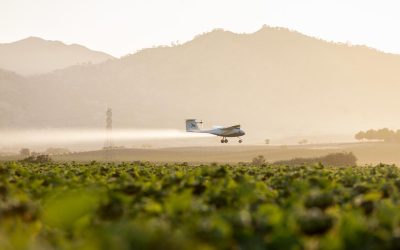Hurricane Helene’s wrath is impacting everyone in the Southeast, especially farmers. September is harvest time for crops like cotton, and now Georgia and South Carolina are especially feeling the impacts.
Soundbite: “Most fields have open bolls at this time, so the storm will be an issue.” — Michael Jones, Clemson Cooperative cotton specialist
In South Carolina, cotton harvest usually begins in late September. But with all the rain from the storms, cotton fiber will be reduced. And harvesting the tangled plants off the saturated soil won’t be an easy task.
Other wreckage: Pulverized poultry houses, row crop damage, pecan tree damage, and ruined timber are having large effects in Georgia. Not to mention the numerous processing facilities without electricity.
Precious pecans: Georgia produces 88M pounds of pecans per year, more than any other state. The majority of its production is located in the direct path of the storm. Regrowing a pecan tree can take up to 25 years depending on the variety.
Soybean sorrows: While the rain from Helene alleviated drought conditions in some areas, it will likely cause green-leafed plants to lodge. And there’s a risk of Asian soybean rust riding in on Helene’s coattails.
Meanwhile, most corn has reportedly been harvested. Great news, but needless to say that any remaining cornstalks will be difficult to get out of the fields.
In addition to South Carolina and George, Helene also caused damage and flooding in Florida, North Carolina, Virginia, and Tennessee.
Documentation is crucial: Farmers are encouraged to document all losses before, during, and after cleanup to help streamline eventual insurance or aid payments. They should also keep track of their financial records.
Meat Industry Beat
We’re tracking some big moves in the meat industry: a family brand turned equity firm holding, an...
Pyka’s Pelicans To Take Flight?
Pelicans are getting closer to flying the skies, and we aren’t talking about birds. Pyka is an...
Breadbasket Bottleneck
As the war in Ukraine nears the four-month mark, agriculture issues are still a major concern in...




